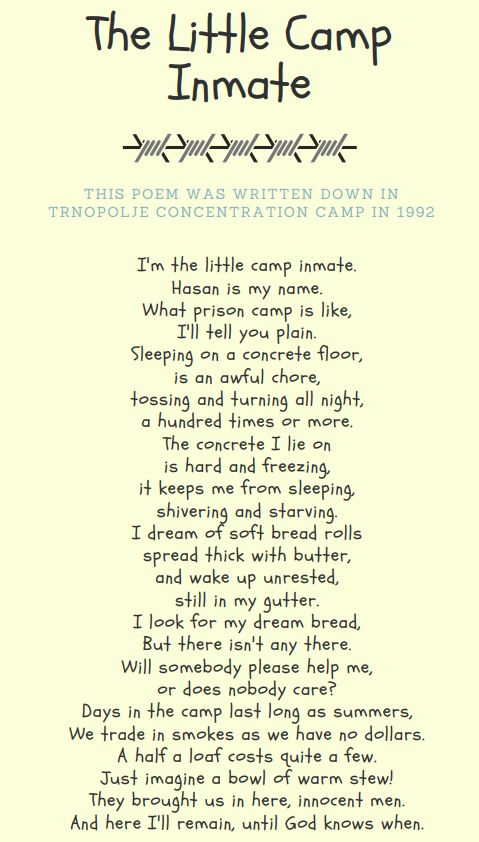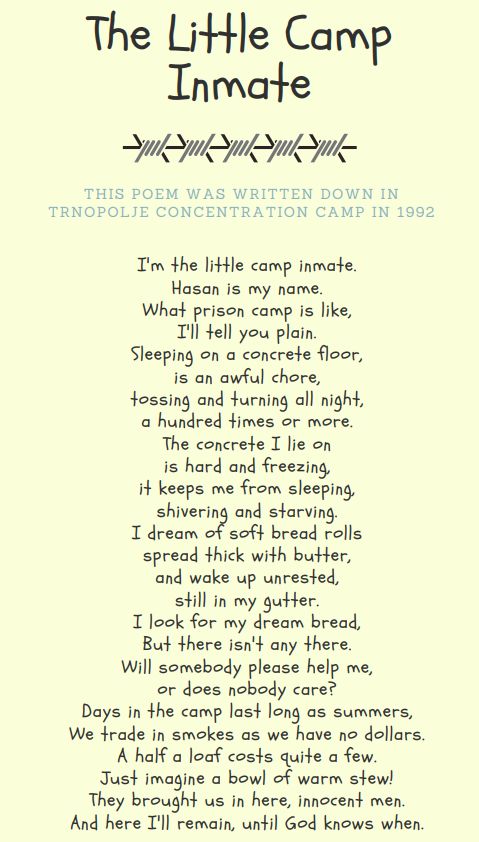Shocking Revelations: White Armband Day Marks Start of Ethnic Cleansing
Understanding #WhiteArmbandDay and Its Historical Significance
In May 1992, a harrowing chapter of history unfolded in Prijedor, a town in Bosnia and Herzegovina, where Serb forces initiated a campaign of ethnic cleansing against Bosniak and Croat civilians. This brutal campaign involved forcing these individuals to wear white armbands, effectively marking them for persecution. This marked the beginning of an inhumane strategy aimed at identifying, targeting, and ultimately eradicating specific ethnic groups. The events surrounding #WhiteArmbandDay serve as a critical reminder of the consequences of hatred and the importance of remembrance in preventing future atrocities.
The Context of Ethnic Cleansing in Bosnia
The Bosnian war (1992-1995) was characterized by ethnic tensions that escalated into widespread violence. The conflict primarily involved three ethnic groups: Bosniaks (Bosnian Muslims), Croats (Bosnian Catholics), and Serbs (Bosnian Orthodox Christians). As these groups vied for power and territory, the situation deteriorated into a genocidal campaign, particularly against Bosniaks. The use of white armbands was a deliberate tactic to segregate and dehumanize the targeted populations, leading to horrific consequences such as forced displacement, internment in concentration camps, and mass killings.
The Role of White Armbands
The imposition of white armbands on Bosniak and Croat civilians was not merely a method of identification; it symbolized the stripping away of humanity and dignity. The armbands served as a visual cue for aggressors, marking individuals as targets for violence and persecution. The act of forcing civilians to wear these armbands was emblematic of the broader strategy of ethnic cleansing, where the goal was to create a homogenous ethnic landscape through terror and violence.
The International Response
The international community’s response to the events in Prijedor and the wider Bosnian conflict was initially slow and inadequate. Despite evidence of atrocities, including the systematic use of white armbands for discrimination, the international community struggled to intervene effectively. It was not until the later stages of the war, particularly after the Srebrenica massacre in July 1995, that global awareness and condemnation reached a peak. This delay in response underscored the challenges of international humanitarian intervention and the complexities of responding to ethnic conflicts.
- YOU MAY ALSO LIKE TO WATCH THIS TRENDING STORY ON YOUTUBE. Waverly Hills Hospital's Horror Story: The Most Haunted Room 502
Observing #WhiteArmbandDay
WhiteArmbandDay serves as an annual commemoration of the atrocities committed in Prijedor and a broader reflection on the horrors of ethnic cleansing. By remembering these events, we honor the victims and emphasize the importance of education and awareness in preventing similar occurrences. The day is marked by various activities, including educational campaigns, discussions, and remembrance ceremonies, aimed at promoting understanding and reconciliation among different communities.
The Importance of Remembrance: #WeRemember
The hashtag #WeRemember is often used in conjunction with #WhiteArmbandDay, highlighting the importance of collective memory in the face of atrocities. Remembering the victims of ethnic cleansing is crucial for the healing process of affected communities and serves as a reminder of the fragility of peace. Through remembrance, we acknowledge the suffering endured by individuals and families, reinforcing the moral imperative to prevent future genocides and ethnic violence.
Educational Initiatives and Their Impact
In recent years, numerous organizations have taken steps to educate the public about the Bosnian War and the significance of #WhiteArmbandDay. These initiatives aim to raise awareness about the dangers of nationalism and the importance of protecting human rights. By providing resources, hosting events, and fostering discussions, these organizations contribute to a more informed society that can recognize and challenge hate and intolerance.
Conclusion: A Call to Action
As we reflect on the events of May 1992 in Prijedor and the broader implications of #WhiteArmbandDay, it is essential to acknowledge our responsibility not only to remember the past but to actively work towards a future free of ethnic violence and discrimination. The lessons learned from this dark period in history should inspire us to promote tolerance, understanding, and respect for all individuals, regardless of their ethnic or religious backgrounds.
In summary, #WhiteArmbandDay is not just a commemoration of past atrocities; it serves as a vital reminder of the ongoing struggle against hatred and violence. By remembering the victims and educating future generations, we can strive to create a world where such horrors are never repeated. Let us honor the memory of those who suffered and work together to build a more peaceful and inclusive society.

#WhiteArmbandDay: In May 1992, Serb forces in Prijedor forced Bosniak and Croat civilians to wear white armbands and mark their homes. They were identified, targeted, and sent to camps or killed. This was the beginning of ethnic cleansing. #WeRemember pic.twitter.com/VwELbudz4K
— Remembering Srebrenica (@SrebrenicaUK) May 30, 2025
Understanding #WhiteArmbandDay: A Historical Reminder
Every year, on May 31, we remember an incredibly dark chapter in history known as #WhiteArmbandDay. This day serves as a poignant reminder of the atrocities committed during the Bosnian War, particularly in the town of Prijedor. In May 1992, Bosniak and Croat civilians were forced by Serb forces to wear white armbands and mark their homes. This act was the beginning of a brutal campaign of ethnic cleansing that would result in unimaginable suffering and loss of life.
The Events of May 1992
To grasp the significance of #WhiteArmbandDay, we need to dive into the events of that fateful month in 1992. The town of Prijedor, once a peaceful community in Bosnia and Herzegovina, became a site of terror. The Serb forces, driven by a desire to create an ethnically homogeneous state, implemented a strategy that involved the identification and targeting of non-Serb civilians. Wearing the white armbands was not merely a means of identification; it was a signal for violence and persecution.
Individuals marked with white armbands were often rounded up, sent to concentration camps, or worse. Many were killed outright. This wasn’t just an isolated incident; it was part of a systematic plan to eliminate the Bosniak and Croat populations from the region. The scars left behind are still felt today by survivors and the families of those who were lost.
The Impact of Ethnic Cleansing
Ethnic cleansing is a term that many of us have heard in passing, but its implications are far-reaching and devastating. The actions taken in Prijedor and other parts of Bosnia during the war constitute one of the most severe violations of human rights in modern history. The purpose was not only to remove a population but to instill fear and exert control. This led to a cycle of violence that affected countless lives and left a lasting impact on communities.
In addition to the immediate physical dangers, the psychological toll on survivors cannot be understated. Many carry the weight of trauma and loss, grappling with the memories of that horrific time. Survivors often share their stories, emphasizing the importance of remembrance and education to prevent such atrocities from happening again.
Commemoration and Remembrance
Each year, #WeRemember serves as a rallying cry for those who wish to honor the victims of these horrific events. It’s a day to reflect, educate, and ensure that history does not repeat itself. Many organizations, including Remembering Srebrenica, work tirelessly to raise awareness about the events of the Bosnian War and promote peace and reconciliation.
During #WhiteArmbandDay, various activities take place around the world. From memorial services to educational workshops, the aim is to engage communities in discussions about the past and its implications for the present and future. This is critical not only for the survivors but for all of us who wish to learn from history.
Education as a Tool for Prevention
One of the most effective ways to combat hate and violence is through education. Understanding the historical context of events like those that occurred in Prijedor can help us recognize the signs of rising intolerance today. Many educational institutions incorporate lessons on the Bosnian War into their curricula to foster awareness and empathy among students.
By encouraging open discussions about the past, we can help cultivate a culture of respect and understanding. It’s crucial to highlight the importance of human rights and the need for justice. Organizations dedicated to preserving the memory of the victims play a vital role in this process, ensuring that their stories are told and that their legacies live on.
The Importance of International Awareness
International awareness plays a significant role in preventing future atrocities. Events like #WhiteArmbandDay not only serve to honor the victims but also to remind us that the global community must remain vigilant against hate and discrimination. Countries must work together to foster environments where human rights are upheld, and the lessons of the past are not forgotten.
The United Nations and various human rights organizations continue to monitor situations around the world where ethnic tensions threaten peace. By advocating for justice and accountability, we can help ensure that the horrors of the past are not repeated.
Personal Stories of Resilience
While the statistics and facts surrounding the Bosnian War and the events of #WhiteArmbandDay are harrowing, it’s important to remember the individuals behind them. Survivors have shared their stories, revealing not only the pain they endured but also their strength and resilience. These narratives are crucial for humanizing the statistics and reminding us that each number represents a life, a family, and a community.
Many survivors have become advocates for peace, using their experiences to educate others. Their courage in sharing their stories serves as a powerful reminder that even in the face of unimaginable adversity, hope and healing are possible.
Moving Forward Together
Reflecting on the events surrounding #WhiteArmbandDay is not just about remembering the past; it’s about looking toward the future. As we engage in discussions about tolerance, acceptance, and human rights, we must also take action to ensure that we are building a world where such atrocities are not tolerated.
As individuals, we can contribute by standing against hate in all its forms, supporting policies that promote inclusion, and advocating for the rights of marginalized communities. Each of us has a role to play in creating a more just and equitable society.
Conclusion: A Call to Remember and Act
As we observe #WhiteArmbandDay, let’s commit ourselves to remembrance and action. By acknowledging the past, we honor the victims and ensure that their stories continue to resonate. We must strive to educate ourselves and others, advocate for justice, and promote peace. Together, we can work towards a future where the horrors of ethnic cleansing are never repeated.
“`
This article aims to engage readers, foster understanding, and promote remembrance of the tragic events associated with #WhiteArmbandDay.

